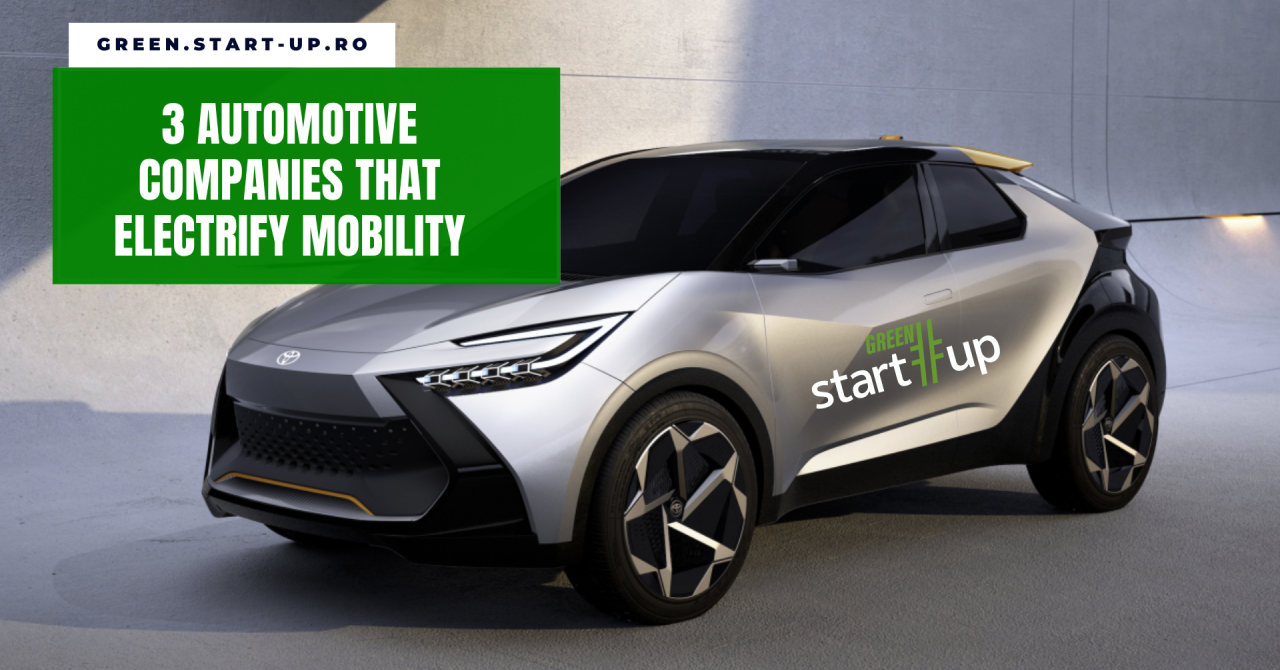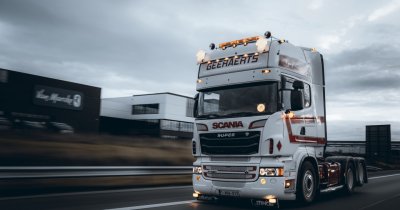There are many choices here and picking the best, most innovative companies is not easy. There are, however, a few that stand out and with some of them, we were able to have a conversation throughout 2023.
Conquering Europe's charging network
Back in summer we wrote about Driveco's efforts to become one of the most influent EV charging companies in Europe. Ion Leahu-Aluas, the CEO of the company, is a French entrepreneur with Romanian roots who aims to take over Western Europe's charging network and grow further from there.
"We are a company that is the manufacturer of the charging stations, we install it, we operate it, we have a full software solution that manages each charger in real time, because thanks to the Internet of Things, these are highly interconnected", the CEO of Driveco said for Green Start-Up at the time.
Currently available in France and Belgium, Driveco charging stations are being installed and operated 100% by the company's team, both on a hardware and software level. In France, according to Ion Leahu-Aluas, Driveco has the largest charging station infrastructure, with one of the best availability rates, close to 99%.
Through its solutions, the company was able to help the EV sector avoid 18.000 tons of CO2 from charging the vehicles, with one million charging sessions already achieved.
Solar power is one of the selling points of Driveco's charging stations. So far, the charging points network has around 5 megawatts worth of installed power, all operated within the stations themselves. Over the next few years, if it's a feasible move to do so, the French company takes into account using local energy storage, as well, to maximize the efficiency of the charging points, should enough EVs be on the road by then.

With around 50.000 drivers using Driveco's charging stations that many times in a month, it's no wonder that the company gained traction in the region. The company's database also reveals that there are some 70.000 unique users who charge their cars using Driveco's solution, which means a fairly high customer retention rate.
For each power level, Driveco offers cheaper prices than the average price on the EV charging market. The company is able to do that, while delivering the increase in reliability and technology, by internalizing the supply of energy.
As far as 2023 goes, Driveco planned to further expand in France, while also installing around 300 other charging stations that it manufactured this year. At the same time, the French charging station expert is looking at reaching as many Western European markets as possible by next year. We can only hope that Driveco was able to achieve as much of its objectives for this year and maybe next year we'll be reaching back to see how much the company was able to grow in the meantime.
A better software solution for designing EV batteries
IONETIC is a British company that helps EV makers, especially smaller ones, develop well optimized battery-packs that take advantage of the space available inside electric cars.
When it comes to designing a specific battery pack, the software can create a model in just a few days, reducing research and development time by 90%.
Before starting the company, James was a battery pack researcher at Imperial College London, focusing on helping car companies improve the performance of their current and future EV models.

Photo source: IONETIC
"We developed a platform, which is based both on software and on hardware and it allows us to do these three things [design, manufacturing and testing] more efficiently", he explained.
When it comes to testing, instead of testing a new product, with the components and the materials, which would again be time-consuming, the company's team of engineers is testing a design space of the platform.
IONETIC's James Eaton claims that even big names in the industry could benefit from using the company's services, as they would be able to achieve better range and reduce the size of the battery, making the ride more comfortable for the passengers.
Thus, for a Nissan Leaf, for example, the battery pack would be 40% more volumetrically energy dense and 36% more gravimetrically energy dense, meaning that the Wh/kg would improve, as well. This, according to the co-founder, means that the battery pack for the car would be smaller and lighter, without sacrificing range or performance.
One of the company's goals for this year was growing the team, but at the same time, James was looking to deliver the first battery pack prototypes to customers, so that they can start installing and testing them on the road officially.
As far as plans for the rest of the decade, the CEO says that he's looking forward to the company reaching one gigawatt-hour capacity sometime before 2030.
Big name players working on the mobility of the future
Toyota is one of the companies that was fairly reluctant at first when it came to releasing fully electric vehicles, having focused on hybrids, mostly. However, in the last few years, the Japanese carmaker started releasing more and more electric models, even powered by hydrogen, such as the Mirai.
According to Toyota, the batteries used by the CH-R plug-in hybrid are sourced from Europe, as the model is only available in the region, for now. Having Europe-sourced batteries will also help when it comes to improving the region's resilience on battery tech.
As the bZ4X made its way into Europe back in 2022 as Toyota's first full battery-powered EV in the region, the Japanese manufacturer plans to release an additional five battery-powered models.
Gill Pratt, head of the Toyota Research Institute, said at the time that "owing to the current short supply and high costs of battery materials and lack of infrastructure, it is better to use a combination of battery electric, plug-in hybrid electric and hybrid electric vehicles to reduce CO2 emissions over the next 10-15 years."
The bZ Compact SUV concept, which was presented back in 2022, could be one of these models expected to come sometimes in 2025, while the bZ 3 sedan is another potential EV that Toyota might release in the future in Europe.
These are just some of the companies that are making a move on electric mobility in Europe, as well as the rest of the world and their efforts combined will enable us to drive into the future of no-emissions transport.
 Mihai - Cristian Ioniță
Mihai - Cristian Ioniță












Any thoughts?